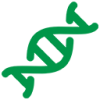Rapid diagnostics for tuberculosis detection
Rapid diagnostics for tuberculosis detection
The e-course focuses on the use of the new tuberculosis (TB) diagnostics tools recommended by WHO, the application of these in four WHO diagnostic model algorithms and the requirements to consider when adjusting those algorithms for the country context.
training group top
Target Audience
Strategic resource persons
Why take this course
WHO data shows that only 6 in 10 people with TB get quality care. Affordable and quick diagnosis is the first step towards achieving such care. There is an urgent need to enable universal access to rapid molecular diagnostic tests, in line with the latest WHO recommendations.
Description
This e-learning course is a comprehensive, self-paced, online course that follows the content of the WHO operational handbook on tuberculosis. Module 3: Diagnosis – rapid diagnostics for tuberculosis detection (2021 update) . The main focus of the e-course is programmatic; clinical aspects are only discussed when relevant to specific topics.
The e-course comprises seven sections and a final assessment and uses a combination of short video lectures, exercises, quiz questions and additional reading materials.
Course Index :
Introduction to the e-learning course Rationale for delivering diagnostic services Key elements of TB diagnostic services WHO-recommended diagnostic tests
Conventional and initial diagnostic test Follow-on diagnostics, tests recommended against use, and tests in the pipeline
Considerations for the new implementation of new diagnostics Diagnostic algorithms Monitoring the performance of a TB laboratory network Final assessment
Link to associated Resources
 Feedback
Feedback
 Email
Email Facebook
Facebook Twitter
Twitter